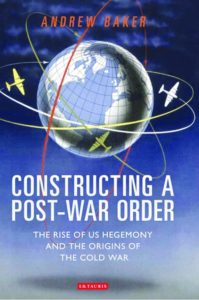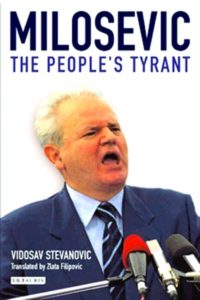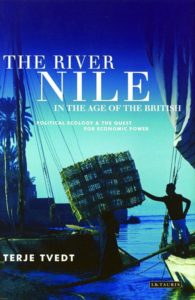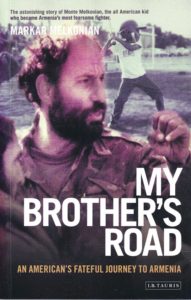

Constructing a Post-War Order: The Rise of US Hegemony and the Origins of the Cold War
Andrew Baker
I.B. Tauris (2011)

The years 1942 to 1946 saw the acceleration of World War II, its conclusion and the construction of a post-war order that was to culminate in the Cold War. Andrew Baker here examines the expansion of US political and economic power and hegemony during this period, and the extent to which smaller states, particularly Australia, New Zealand, Canada and South Africa, contested this expansion. Through successfully outlining and defending their own notions of sovereignty, property and commercial rights, they were able to a make a significant contribution towards fashioning a post-war framework more conducive to states than empires. This analysis of the period immediately after World War II will appeal to researchers of history and international relations, as well as those interested in the political economy of the post-war world.
Andrew Baker is a Lecturer in History at the Universities of Hertfordshire and Buckingham. He holds a DPhil from the University of Oxford.

Milosevic: The People’s Tyrant
Vidosav Stevanovic, Zlata Filipovic
I.B. Tauris (2004)
This book is a fascinating and revealing biography of Slobodan Milosevic. It is an up to date account of his life, career and downfall. It sheds much-needed new light on the man that is known as Belgrade’s tyrant and the successor to Tito, who was known as the Butcher of the Balkans. Stevanovic looks at all of Milosevic’s wrong-doings, tells stories from the victims and provides a shocking portrait of his psychology. More than just the biography of a dictator, the book looks at the influences that shaped him, and the people had an effect on his life. It paints an appalling picture of the Balkans that Milosevic created and the horror that he instilled in the region, from which it will take years to recover.
Vidosav Stevanović is a novelist, story writer, poet, playwright and publicist. He has written over thirty literary works, a political biography of Slobodan Milošević, numerous essays and various other pieces of writing.

An Angel Directs the Storm: Apocalyptic Religion and American Empire
Michael S. Northcott
I.B.Tauris (2004)
This passionately argued book provides the first in-depth investigation of the religious politics of current American neo-conservatism. It shows that behind the neo-imperialism of the White House and George W. Bush lies an apocalyptic vision of the United States’s sacred destiny “”at the end of history”“, a vision that is shared by millions of Americans. The authors trace the roots of American apocalyptic to Puritan Millennialism and contemporary fundamentalist readings of the Book of Revelation. They suggest that Americans urgently need to recover a critique of Empire of the kind espoused by the founder of Christianity—or else risk becoming idolaters of a new Holy Roman Empire that leads others into servitude.
Michael Northcott is one of Britain’s best known specialists in theology and politics, and is Reader in Christian Ethics at the University of Edinburgh.

The River Nile in the Age of the British: Political Ecology and the Quest for Economic Power
Terje Tvedt
I.B.Tauris (2004)

The Nile today plays a crucial role in the economics, politics and cultural life of ten countries and their more than 300 million inhabitants. No other international river basin has a longer, more complex and eventful history than the Nile. In telling the detailed story of the hydropolitics of the Nile valley in a period during which the conceptualisation, use and planning of the waters were revolutionised, and many of the most famous politicians of the twentieth century – Churchill, Mussolini, Eisenhower, Eden, Nasser and Haile Selassie – played active parts in the Nile game, this work will stand as a case study of a much more general and acute question: the political ecology of trans-national river basins.
Terje Tvedt is Research Director in the Faculty of Social Science at the University of Bergen.

My Brother’s Road: An American’s Fateful Journey to Armenia
Markar Melkonian
I.B. Tauris (2008)
What do Abu Sindi, Timothy Sean McCormack, Saro, and Commander Avo all have in common? They were all aliases for Monte Melkonian. But who was Monte Melkonian? In his native California he was once a kid in cut-off jeans, playing baseball and eating snow cones. Europe denounced him as an international terrorist. His adopted homeland of Armenia decorated him as a national hero who led a force of 4000 men to victory in the Armenian enclave of Mountainous Karabagh in Azerbaijan. Why Armenia? Why adopt the cause of a remote corner of the Caucasus whose peoples had scattered throughout the world after the early twentieth century Ottoman genocides? Markar Melkonian spent seven years unraveling the mystery of his brother’s road: a journey which began in his ancestor’s town in Turkey and led to a blood-splattered square in Tehran, the Kurdish mountains, the bomb-pocked streets of Beirut, and finally, to the Cold War and the unraveling of the Soviet Union. Yet, who really was this man? A terrorist or a hero? My Brother’s Road is not just the story of a long journey and a short life —it is an attempt to understand what happens when one man decides that terrible actions speak louder than words.
Markar Melkonian is a teacher, writer and veteran solidarity worker. Melkonian’s books include Marxism: A Post-Cold War Primer (1996) and Richard Rorty’s Politics: Liberalism at the End of the American Century (1999). He is a founder and a member of the Board of Directors of The Monte Melkonian Fund, Inc., a nonprofit organization that assists the neediest of the needy in the impoverished former Soviet Republic of Armenia. He lives in Los Angeles.


